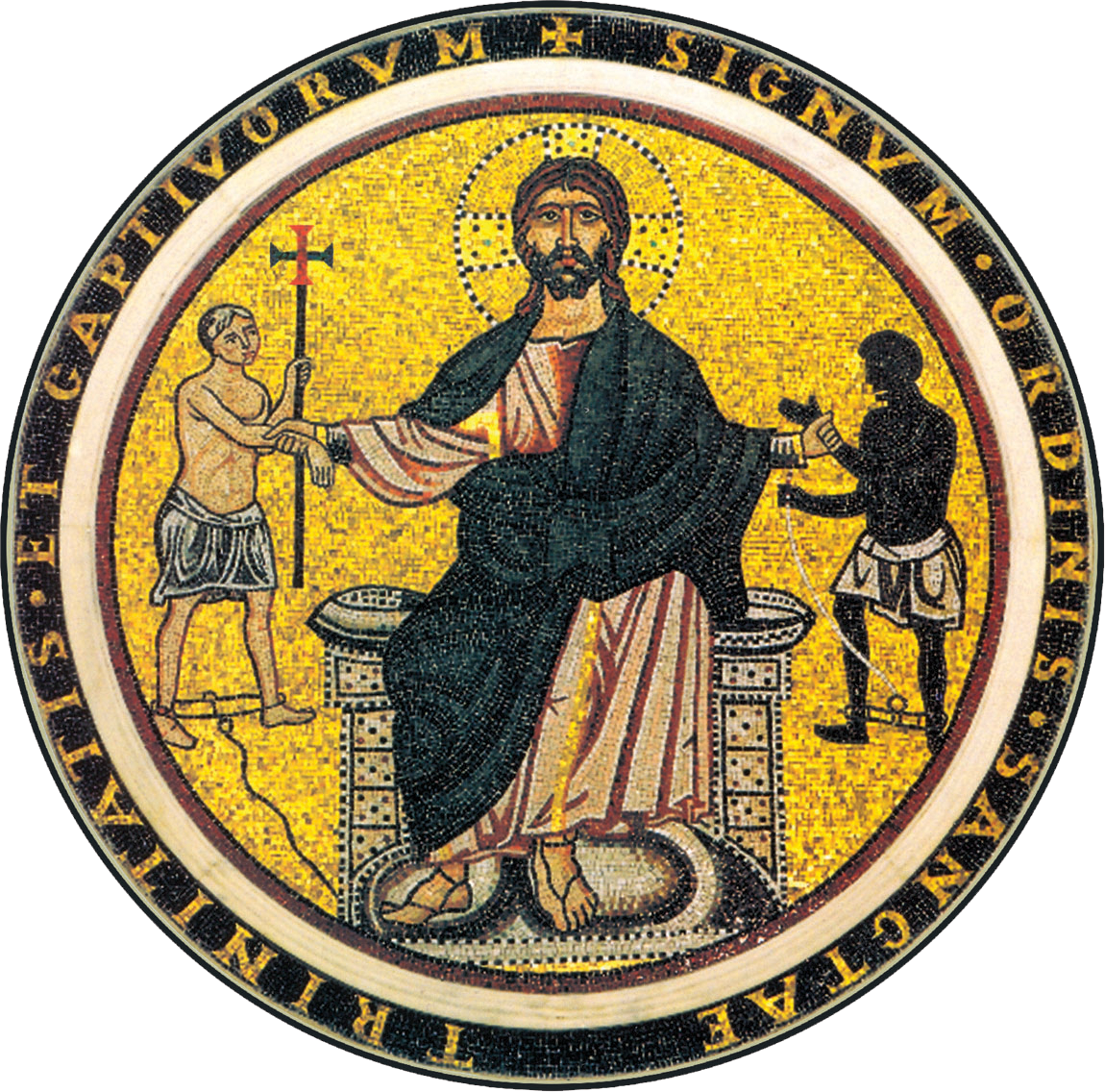12-19 April 2023 Spain-Morocco
Coming together from 22 different countries, from 12 to 19 April 2023, we celebrated the VII International Assembly of the Trinitarian Family, in the unique form of a pilgrimage. The Assembly is a moment of grace, of fraternal communion, of mutual listening: a true synodal experience of the Trinitarian Family. Cultural and geographic diversity was a great richness throughout the Assembly and was also manifested in the liturgical celebrations with the introduction of the Malagasy language for the first time.
The theme of the Assembly: “The imprint of the Redeemers: vocation and identity” is the key to living the Trinitarian charism with creative fidelity, in the memory of the origins and at the same time listening to the present time with its challenges and complexity. Fidelity and renewal refer to each other: one cannot exist without the other. Remembering the origins and the first redemptions does not mean going back to the past, but drawing new lifeblood from the roots to actualize the Trinitarian charism in this time and in the places where we are called to work.
Starting from the original inspiration and long missionary tradition of the Trinitarian Family, we are called to grasp the “flagrant actuality” [1] of our charism to be at the side of so many who today continue to suffer discrimination and persecution because of their faith in Christ. Through the lectures given by Father Pedro Aliaga and Father Ignacio Rojas, we were able to rediscover the historical and biblical roots of our mission. The work of redemption accomplished by Christ in the paschal sacrifice, and which was carried out by the first Trinitarian redeemers in the liberation of the slaves, is our perennial mission. Starting from the original inspiration and long missionary tradition of the Trinitarian Family, we are called to grasp the “flagrant actuality” of our charism to be at the side of so many who today continue to suffer discrimination and persecution because of their faith in Christ. Through the lectures given by Father Pedro Aliaga and Father Ignacio Rojas, we were able to rediscover the historical and biblical roots of our mission. The work of redemption accomplished by Christ in the paschal sacrifice, and which was carried out by the first Trinitarian redeemers in the liberation of the slaves, is our perennial mission.
Enlightened by the Pauline expression “you were bought at a good price”, we explored the metaphor of redemption as a biblical image that challenges us. The lowering of Jesus, becoming a slave for the sake of humanity, reminds us that our vocation and identity are illuminated by the mystery of Christ the Redeemer, towards whom we must always keep our gaze fixed. The Word of God sends us to the margins, to the peripheries to meet there the faceless and invisible of our time and those who do not have religious freedom. As the Trinitarian Family, in tune with the Pauline message, we are called to go out to those excluded from salvation in creative fidelity to our charism, to announce to them the redemption of Christ.
Reliving the path of the first redemptions of slaves is also an invitation to a “love that goes beyond the barriers of geography and space.”[2] Morocco is the cradle of the Order’s mission, starting from the experience of our Founder Saint John de Matha, who, at a time marked by the crusades and the arms race, represented an evangelical alternative by acting as an intermediary between Pope Innocent III himself and the leaders of the Muslim world, “thus inaugurating a dialogue that had as its object the practice of works of mercy.”[3]. Innocent III’s own letter to the Sultan of Morocco (8 March 1199), is an extraordinary attestation of the importance of the redemptive mission of our Founder and his companions, implemented in a peaceful manner.
The route we travelled marked the Trinitarians’ commitment to the redemption of the ‘captivi pro fide Christi’ for the following centuries.
Our itinerary was marked by several stops: Seville, Algeciras, Tangier, Rabat, Fez, Meknes. The meeting with the pastors of the local Churches, Mgr. Emilio Rocha Grande, Archbishop of Tangier and Card. Cristobal Lopez Romero Archbishop of Rabat, and the moments of prayer and reflection we shared, were for all of us a stimulus to broaden the horizons of the heart to live a fraternity with a universal breath. We were struck by the small Catholic community present in Morocco, ‘insignificant’ from a numerical point of view, but particularly significant for its fervent and joyful witness to faith in Christ in a country where Christians are a religious minority: a Church, as Cardinal Cristobal Lopez Romero defined it. Cristobal Lopez Romero, of dialogue and encounter, a Samaritan Church, a bridging Church, a Church passionate for Christ and for the people of Morocco, and passionate for those who visit and meet it.
Great joy was the presence of Mgr. Aldo Berardi, Apostolic Vicar of Northern Arabia: an honor and a great gift for the whole Trinitarian Family and at the same time an invitation to work with more generosity and commitment in favor of persecuted Christians.
On 14 April, at the Trinitarian community of Algeciras, the Trinitarian Laity Assembly was held with the election of the new members of the CILT (International Council of Trinitarian Laity). While we thank the members of the outgoing Council for their commitment and dedication in the service of animating Trinitarian Laity, we wish the new Council good work in growing in fidelity to the charism and in communion with the Trinitarian Family.
The following directions and guidelines for the future emerged from the reflections of the various groups:
- Promote specific charismatic formation “in the family”, deepening the biblical foundations and the historical origins of the Trinitarian charism, highlighting the specific aspects of our charismatic identity, with suitable means and initiatives (lectio divina on the biblical texts that speak of redemption, deepening the historical and social context in which our Founder lived, etc.).
- There is a need for greater preparation in the field of interreligious and intercultural dialogue: a real challenge for the Church, especially in contexts where it is a minority.
- Recognize the primacy of concrete action in favor of those persecuted for the faith through SIT to offer a contagious witness to our charism.
- Consolidate and expand our presence in territories where Christians are persecuted, adequately preparing those who will carry out their mission permanently in these territories.
- To grow the spirit of family and unity in the diversity of specific vocations, walking in synodality, leaving out pyramidal systems and self-referential temptations, implementing a style of circularity and humility. Fraternal communion is our first mission and the greatest witness we can offer the world.
- Promoting devotion to the redeemed Jesus Nazarene in the different cultures.
- Our communities and lay fraternities should be open to all, especially young people: involve them as protagonists, favoring concrete and meaningful experiences of our charismatic commitment.
- Promote more effective communication both within the Trinitarian Family and externally. To make Trinitarian spirituality and works known through the good use of modern means of communication to widen our network of solidarity.
In thanking the organizing committee and all those who have worked for the smooth running of this Assembly, we entrust to the intercession of the Our Lady of Good Remedy and our saints, the resolution to live and bear witness with passion and generosity to the redemptive-liberating charism to the glory of the Most Holy Trinity, whose image shines in the heart and life of every human being.
[1] FRANCIS, Address of the Holy Father to the participants at the Conference ‘International Trinitarian Solidarity’, promoted by the Order of the Holy Trinity (Trinitarians), (25 April 2022).
[2] FRANCIS, Encyclical Letter Fratelli tutti on Fraternity and Social Friendship, No. 1. 1.
[3] JOHN PAUL II, Message to the Minister General of the Order of the Most Holy Trinity on the occasion of the 8th centenary of the approval of the Rule proper in AOSST XIII (1998), 447.





